(April 10, 2022) He’s among a small handful of non-Ivy League students to bag the prestigious Schwarzman Scholarship for 2022-23. A quick Google search throws up headlines like, “Three Princeton graduates” and “Four Stanford grads.” Still, Manthan Shah arrives at our video call surprised. “I don’t understand why you want to write about me,” he quips. “There are many better people…” His modesty is misplaced. At 22, Manthan boasts a long list of achievements – he’s a national-level table tennis champion, the youngest Indian to win the Spartan Trifecta, a global endurance challenge and the youngest writer to sign with Penguin Random House for his book, Unstoppable, a collection of stories on young Indians who have defied the odds on their journey to success. In August, Manthan will begin his year-long master’s in global affairs at Tsinghua University in Beijing’s Forbidden City. Manthan has also had his own podcast from the age of 19. On Planet Impact, he interviews social entrepreneurs across the world.
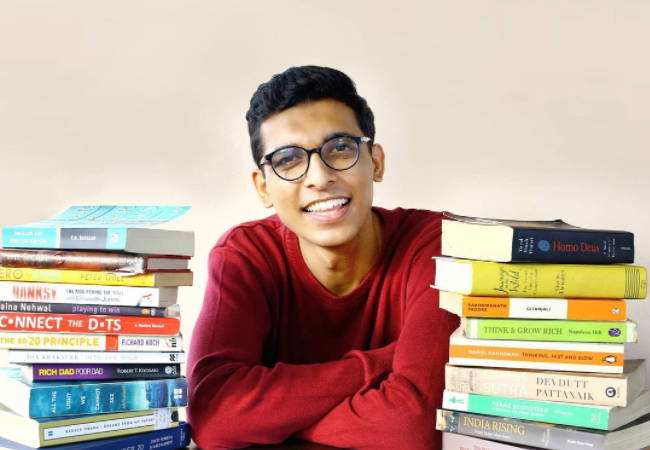
Manthan Shah
Entry to The Forbidden City
At 22, Shah speaks with a wisdom that far belies his age, brought on, maybe by years of disciplined, athletic training as a table-tennis player. and of having to rethink his dreams when his peers were just beginning to form theirs. The Schwarzman Scholarship, Manthan tells Global Indian, came almost out of the blue. A student at SP Jain School of Global Management (Mumbai), it was the unerring faith his dean, Professor Golo Weber, instilled in him that pushed Manthan to apply – he put together his application, statement of purpose and video essay in under a week.
His application was among 400 selected out of 3,000 for an interview round held in Beijing, London, New York or Singapore. The interview, Manthan admits, was quite formidable, with a panel of CEOs, former prime ministers, heads of global companies like Goldman Sachs and JP Morgan Stanley, and parliamentarians. Asked how he would bring nations together in a polarised world, he said with aplomb, describing what he calls the “Pearl Harbour moment,” which redefined the course of the Second World War. “In terms of the climate, we have Pearl Harbour moments every day and still, we refuse to act.” Unsurprisingly, his master’s programme will focus on achieving net-zero carbon emissions.
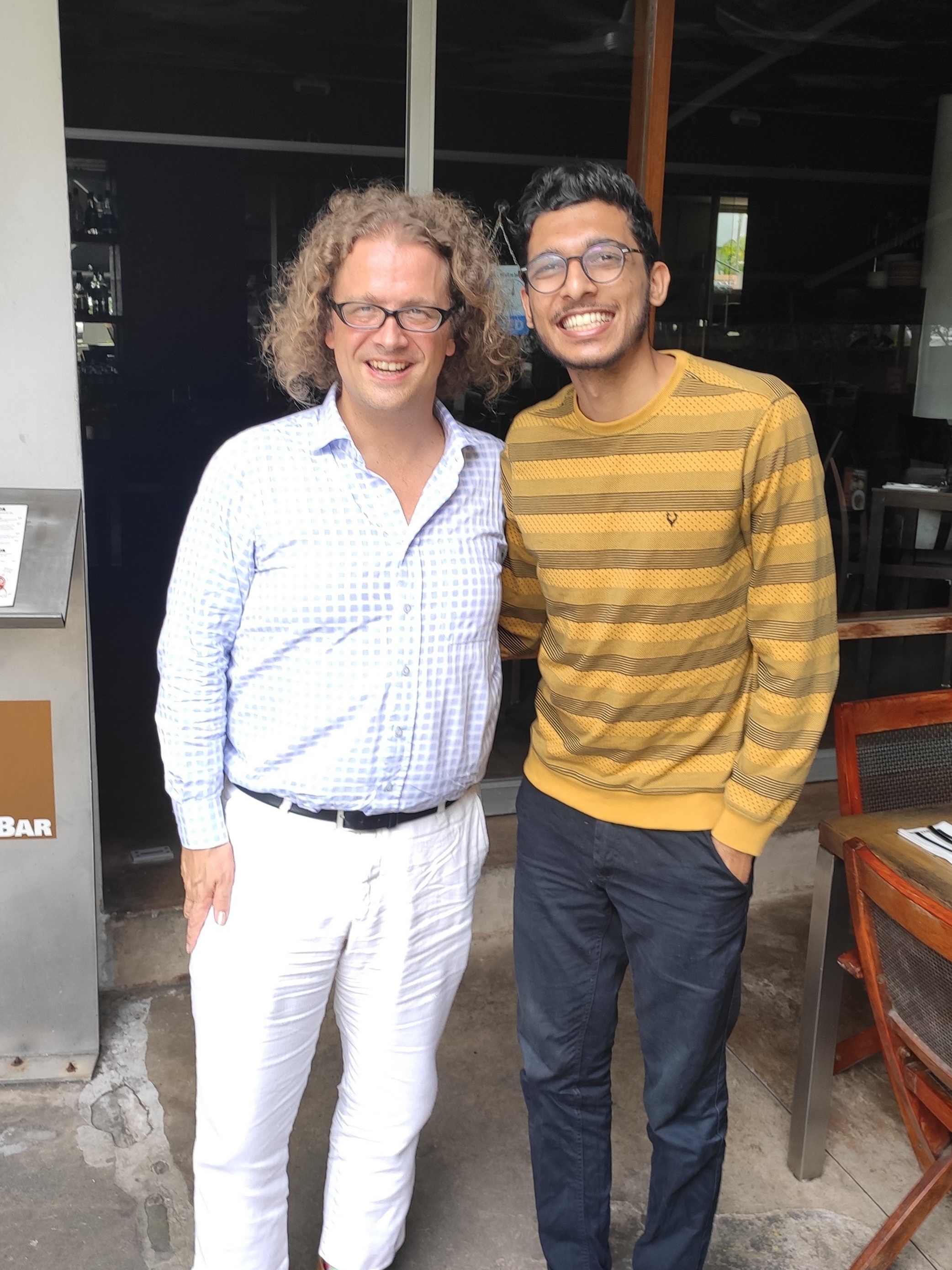

Manthan with Professor Golo Weber
“People have prepared for years for this,” Manthan remarks. “I just happened to get an email from my Professor Golo, with a list of scholarships he thought would suit me.” With the deadline so imminent, Manthan didn’t think he stood a chance, although his professor disagreed. “I had two weeks, I procrastinated for one,” he laughs. “But my professor helped me with everything – the essay prompts, my CV and best of all, a glowing letter of recommendation.” That two-page letter is now framed on his bedroom wall. His editor at Penguin Random House and his boss, Shuva Raha, Head of New Initiatives at the Council on Energy, Environment and Water also chipped in at once. “They are the three busiest people on earth but they did it immediately,” he grins.
The early years
Born and raised in Ahmednagar (120 km from Pune), Manthan was six when he played his first game of table tennis. Very soon, he found he was beating people twice his age. “At 10, I begged dad to move us to Pune. Luckily, he listened to me,” Manthan says. He moved to Pune with his mother (his father remained in Ahmednagar to run the family business). Thus, began of a life of athletic rigour and discipline. Home-schooled to enable training – it involved seven hours a day, six days a week –fitness for an hour, training for two, meditation, journaling, more training, and yoga.
His efforts paid off. He represented India as Under 18 team captain at the Pacific School Games in Australia. In India, he led the Maharashtra team to two golds, the individual and the team medals, at the School Games Federation of India National Championships 2014-15. Although he was enrolled at Symbiosis School (Pune), but had “a deal with the principal,” as was playing most of the time.
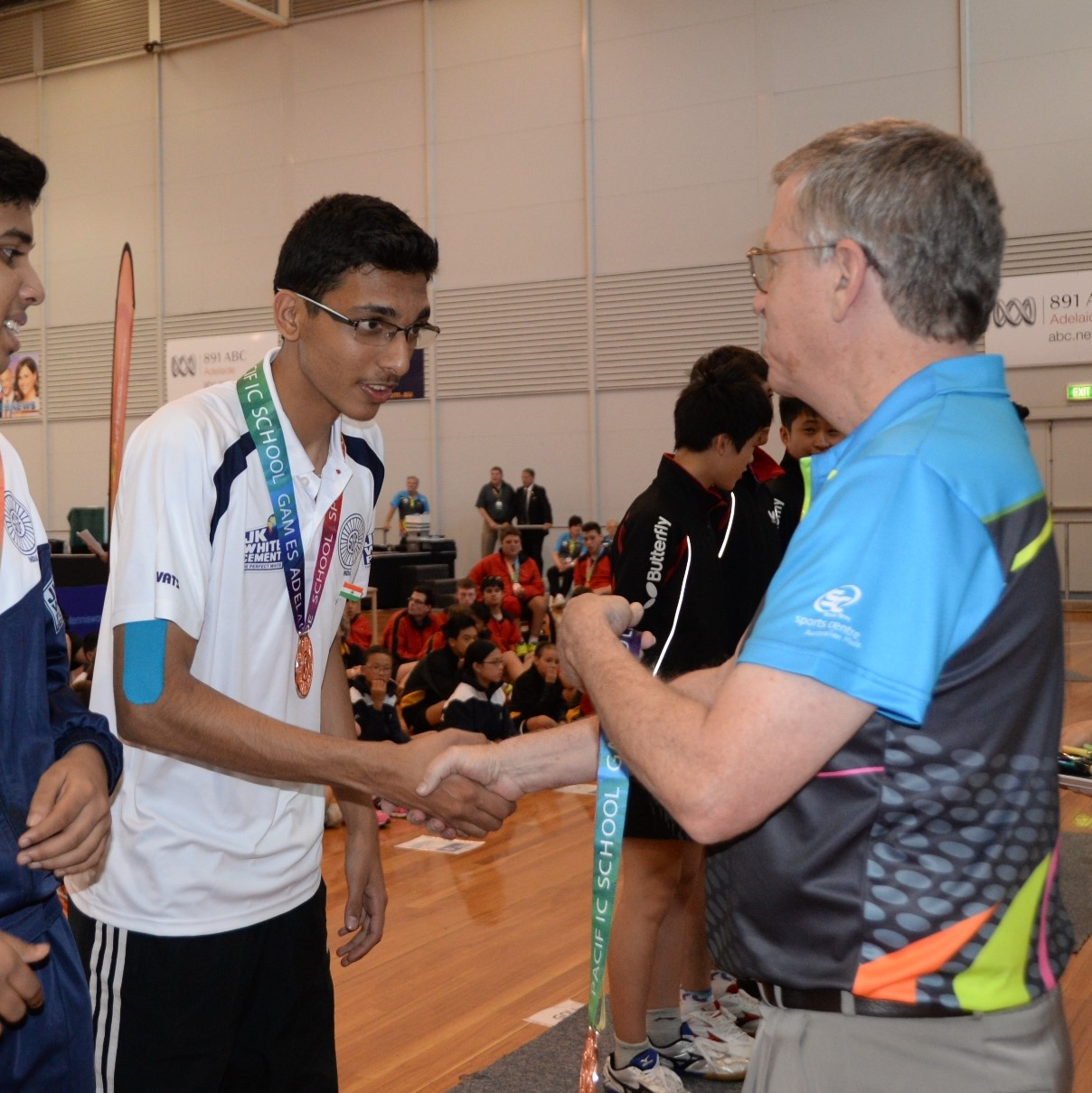

At the Pacific School Games in Adelaide, Australia
At first glance, it seems like a journey filled with triumphs. Manthan disagrees. “It was the tail end of a bell curve,” he says. “There were sparks of achievement in between many, many failures.” His relationship with his coach was an unhappy one and there were infrastructure constraints. “I would have had to go to China or Germany. I couldn’t have stayed in Pune,” Manthan says, adding, “It didn’t seem worth the trouble, it seemed like an endless struggle for mediocrity. You work so hard with no assurance of success.”
The road less travelled
Thus, taking a step back, at 17, from his dream of being an Olympian, he recalls, “I felt like I wanted to make things easier for young Indians and hit the pause button on table tennis.” Instead, Manthan took a gap year, worked for some non-profits (Teach for India, the Akanksha Foundation, and local orphanages). He started his own organisation too, reaching out to children with potential, creating a network to connect volunteers with various NGOs.
It takes some prodding before Manthan opens up about the toll that a gap year took. He recounts a dreamy, Kerouac-like experience of hitching rides and sleeping anywhere (including a temple) as he travelled across India. “I was angry and resentful and travelling without a plan,” he admits as he evaluated career avenues, and how to find success. “I was looking for books to motivate me but there was quite a dearth,” Manthan remarks, adding. “A lot was written by older people who said vague things like ‘dream big’ and ‘think positive.’ In America, they wrote about Steve Jobs and Bill Gates, whose stories can never be compared with ours.”
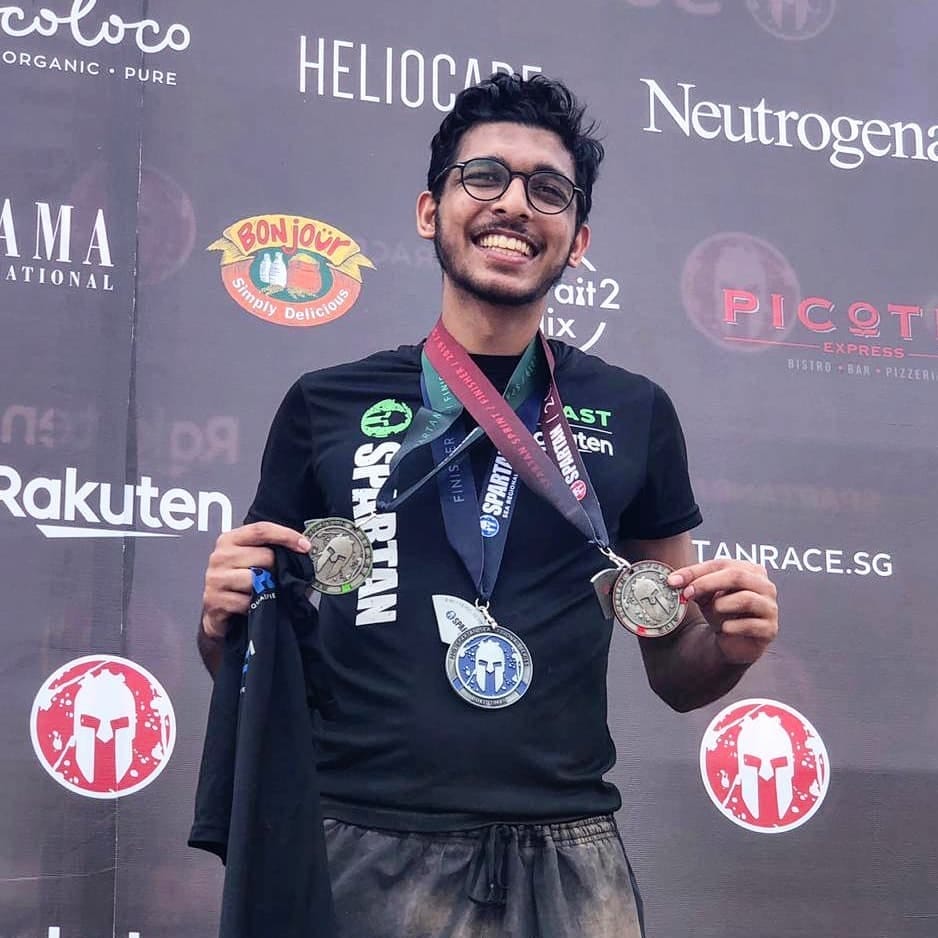

Manthan Shah in 2019, became the youngest Indian to win the Spartan Trifecta
So, “as a young, overconfident Indian, I decided to write my own book.” A two-year diploma (remote) in creative writing later, he learned to tell a story. “It was all very textbook. Then I did a six-month course at Georgetown University, under Dr Eric Koester, who helped me write the first few chapters.”
The Council on Energy, Environment and Water
Failures are just stepping stones for Shah, so when his intern application at CEEW didn’t amount to anything – he invited the CEO, Dr Ghosh to be on his podcast, with a passing mention of his application. Far from sitting neck deep in research, Manthan found himself consulting ministers, reaching out to parliaments and working with the United Nations. “My personal project was to interact with the heads of all the smart city projects,” he says, adding, “I was talking to heads of major conglomerates, including JK Cements and ITC on how they were reducing carbon footprints.”
The book, Unstoppable, was also unfolding. An author on his podcast connected him to an editor. Comparing offers from Westland and Penguin Random House, two proteges (both older), who were learning about podcasts, helped him create a “mind-map” of people to feature.
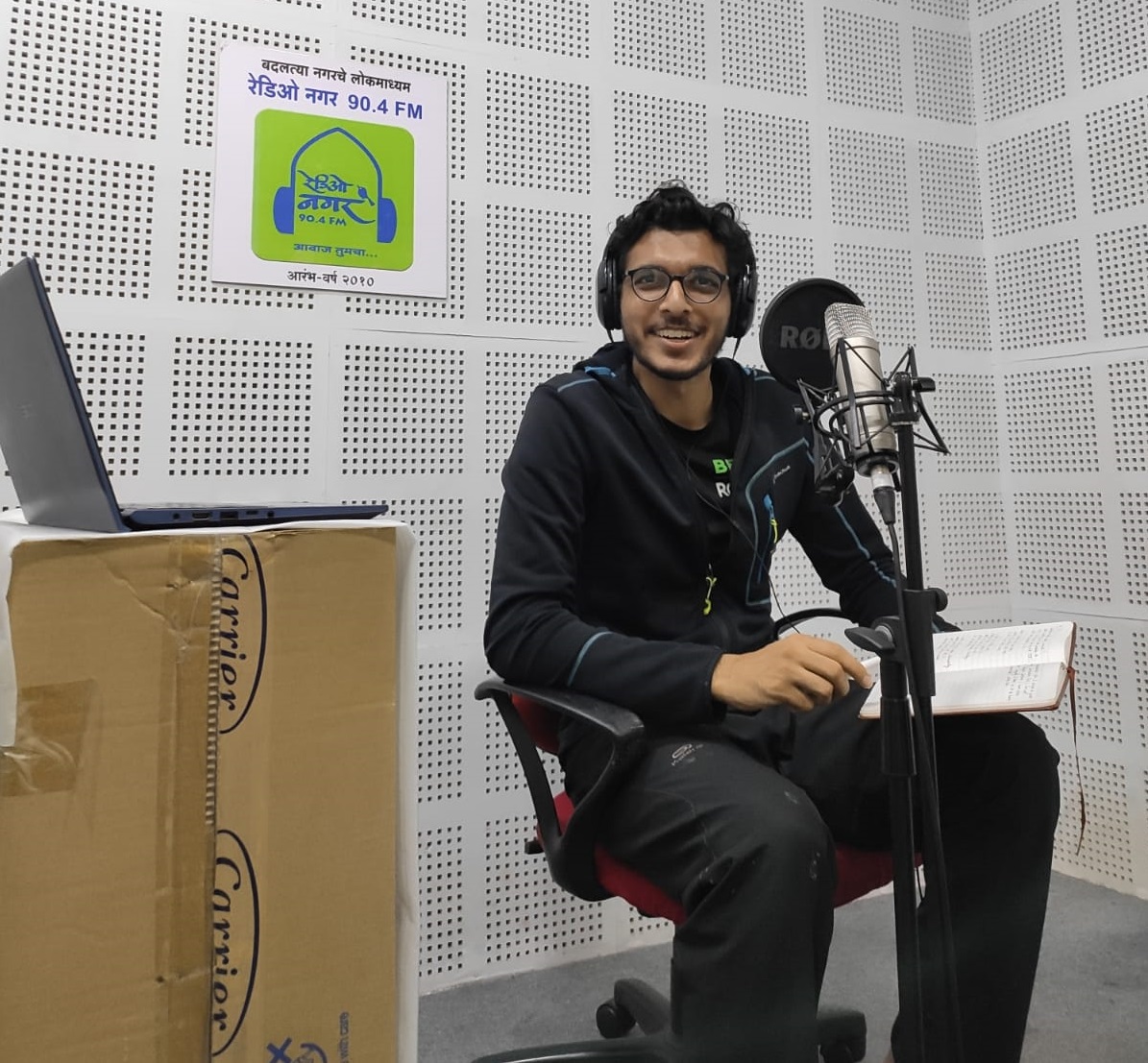

Hosting his podcast, Planet Impact, in Ahmednagar in 2021
Thrilled at a book coming out, he confesses he is not in a hurry to write a second. “The research took months to complete, the writing took two years. Also, there is nervous anticipation. I worry about how many people will buy my book,” he mulls.
Still unconvinced about his worthiness, Shah speaks with gratitude and fondness about those who stood by him. “I am where I am because of all the strangers who championed and honed me,” Manthan smiles. “I’m a vessel for the support and encouragement they had – strangers, my parents, brother, teachers and Dr Ghosh. I’m merely a sum of their contributions.”
- Follow Manthan on Instagram, LinkedIn and Twitter

